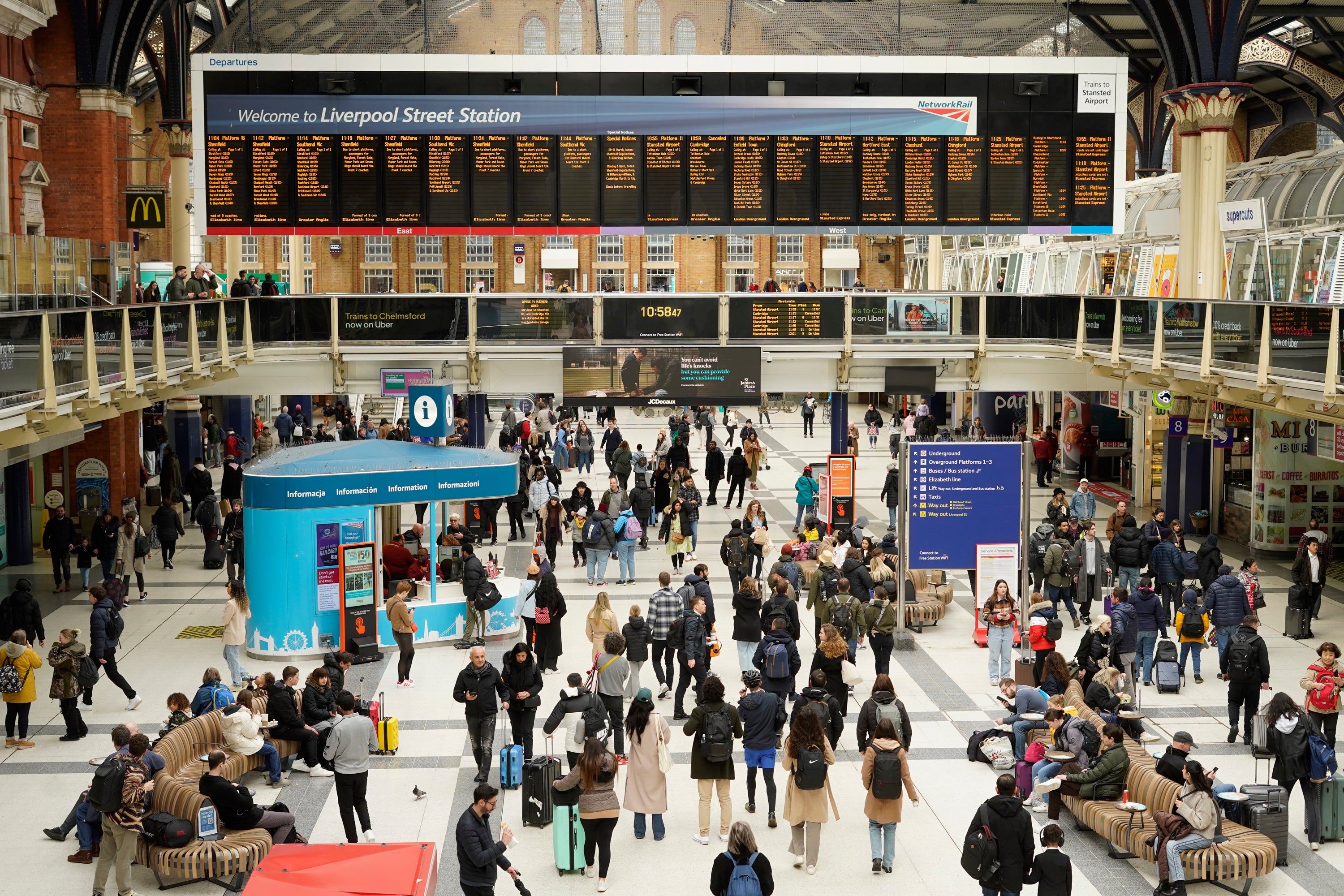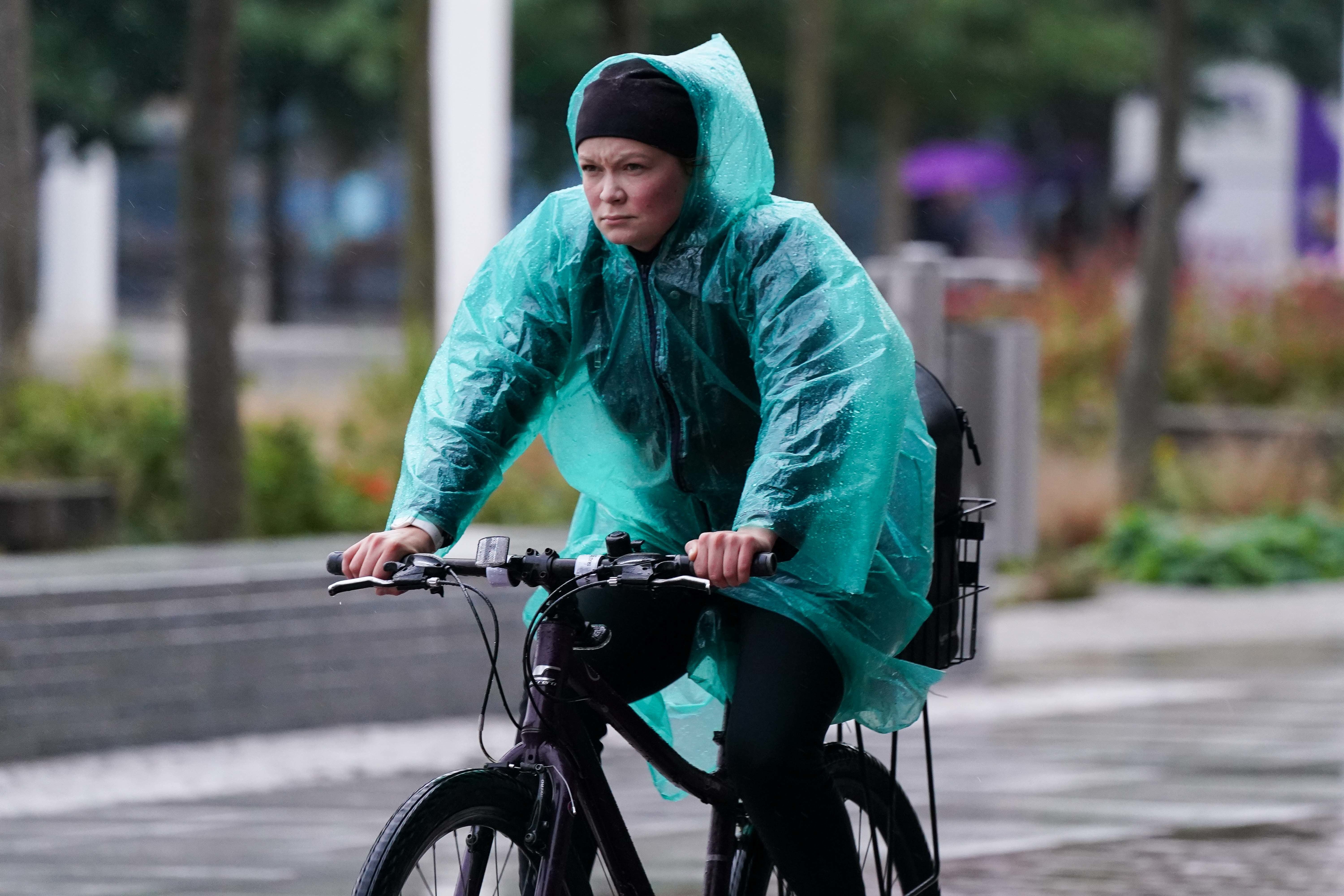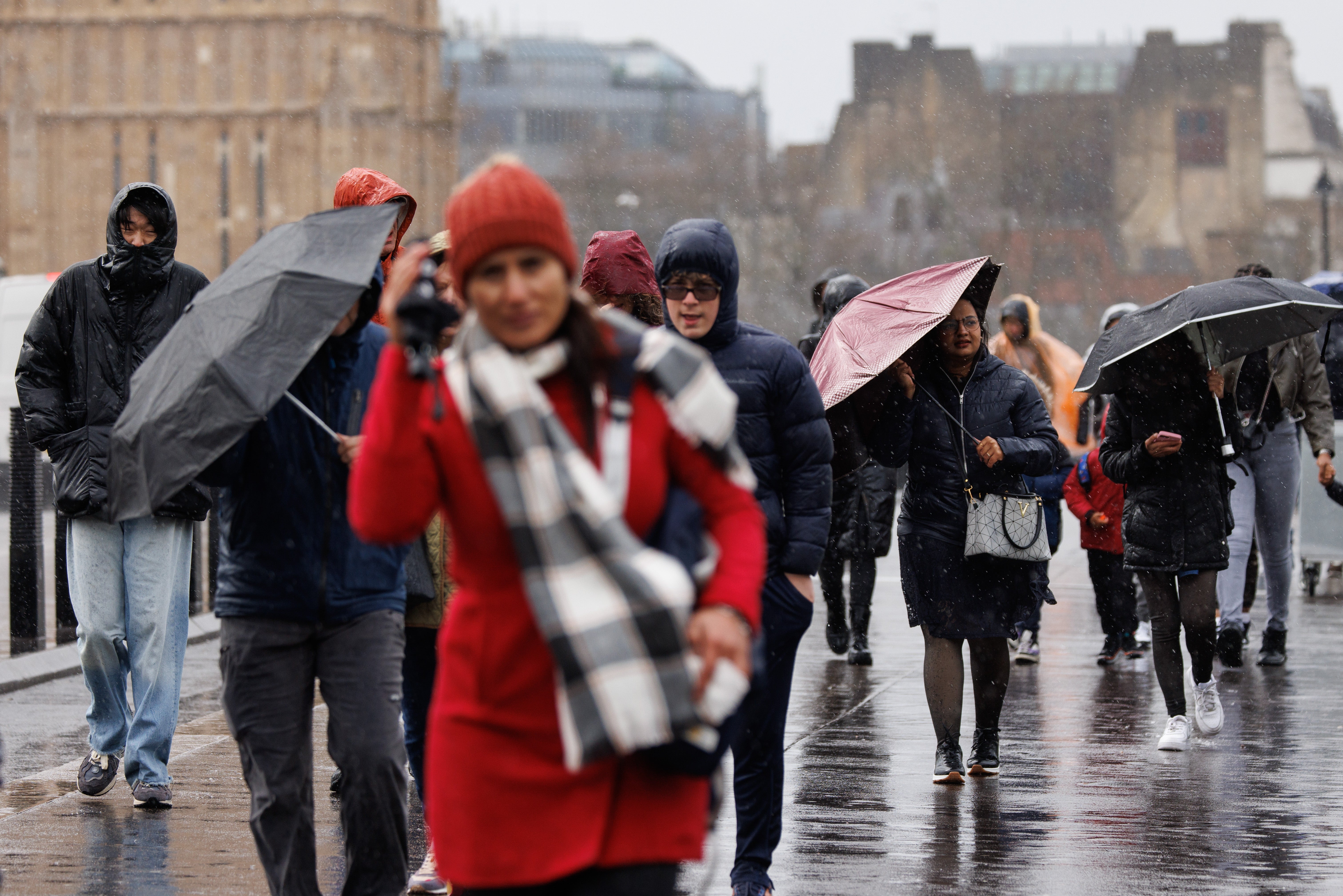Sunak should end ‘war on motorists’ rhetoric and deliver better public transport, say think tank
Exclusive: More than half of the British public think having public transport to and from work is a necessity
Your support helps us to tell the story
From reproductive rights to climate change to Big Tech, The Independent is on the ground when the story is developing. Whether it's investigating the financials of Elon Musk's pro-Trump PAC or producing our latest documentary, 'The A Word', which shines a light on the American women fighting for reproductive rights, we know how important it is to parse out the facts from the messaging.
At such a critical moment in US history, we need reporters on the ground. Your donation allows us to keep sending journalists to speak to both sides of the story.
The Independent is trusted by Americans across the entire political spectrum. And unlike many other quality news outlets, we choose not to lock Americans out of our reporting and analysis with paywalls. We believe quality journalism should be available to everyone, paid for by those who can afford it.
Your support makes all the difference.Rishi Sunak and politicians in Westminster should end their “war on motorists” rhetoric and deliver better public transport to improve their chances at the next general election, a leading think tank has said.
Exclusive polling shared with The Independent reveals that British people are increasingly concerned about the quality of bus, train and bicycle routes after the cost-of-living crisis prompted a change in travel habits.
More than half of the British public – 53 per cent – think having public transport to and from work is a necessity, while more than a third – 35 per cent – say the same about using public transport to see family and friends. This compares to just one in five who see a car as essential, at 20 per cent.
Public transport to work is also seen as more crucial than having a phone (46 per cent) and access to the internet (43 per cent), the polling conducted by More in Common and commissioned by the Institute for Public Policy Research (IPPR) reveals.
The prime minister has been accused of attempting to politicise issues around transport, describing traffic schemes such as low-traffic neighbourhoods as “harebrained”. He has also vowed to end what he sees as the “war on motorists”.
But the polling reveals that 40 per cent of those who drive regularly – defined as three to four times a week – would like to use public transport more often. Four in 10 – 38 per cent – also want the opportunity to walk or cycle more than they currently do.

The survey also reveals the impact of the cost-of-living crisis on people’s transport habits, with seven in 10 people – 71 per cent – changing how they travel to reduce costs in the last two years.
And four in 10 people – 42 per cent – are worried about people being able to afford transport to get around in their day-to-day lives.
Stephen Frost, co-author of the research and principal research fellow at IPPR, said: “Rhetoric from the prime minister fabricating a ‘war on motorists’ over the last few months has been incredibly unhelpful.
“In reality, we know that even the most regular drivers also get on buses and trains and benefit from safer streets to walk, wheel and cycle. You’re not either a driver or a non-driver – in fact, most of us drive and use public transport as well as our legs.
“So it is crucial those in Westminster stop treating transport as a culture war issue and start delivering on the people’s priorities.”

He added: “This polling reveals those priorities as clear and simple, they want public transport that works for more people, and they want to make decisions on transport locally.
“The party that makes that offer the clearest will benefit at the ballot box.”
Dr Maya Singer Hobbs, a senior researcher at the IPPR, who worked on the research, said: “People really like public transport, even those who don’t really use it. So it sort of pushes back on the pigeonholing of putting people into drivers versus cyclists versus pedestrians.
“Most of us have a sense that most cyclists are also drivers, and drivers will be pedestrians – and that just came across pretty strongly in the polling.”

Responding to the polling, Silviya Barrett from the charity Campaign for Better Transport said: “These figures show that rhetoric which pits drivers against public transport users is out of step with public opinion.
“Using public transport removes the stress of driving, on board a train, you can work, read or enjoy the view, so it’s no surprise that more people want to use public transport when possible.
“The rising cost of running a car is pushing some people into poverty, which is why it is essential that government properly invests in affordable public and active transport alternatives.”
The IPPR’s polling comes just days after Sustrans, a sustainable transport charity, released its Walking and Cycling Index which surveyed people across 23 urban areas across the UK and Ireland.
It found that 36 per cent of people said they often use a car because they have no choice and more than half of respondents, 56 per cent, wanted to shift money from building roads to options for walking, cycling and public transport.
A spokesperson for the Department for Transport said: “This Government is committed to ensuring people can travel in the way that works for them, which is why in the last month alone we’ve invested hundreds of millions in bus, rail, road and active travel infrastructure, as well as introduced a range of measures to make roads fairer for all as part of our Plan for Drivers.
“This funding is part of longer-term strategic investment that has seen £3.5 billion invested in bus services since the pandemic, and £100 billion in rail services since 2010, all to better connect communities across the country.”

Join our commenting forum
Join thought-provoking conversations, follow other Independent readers and see their replies
Comments